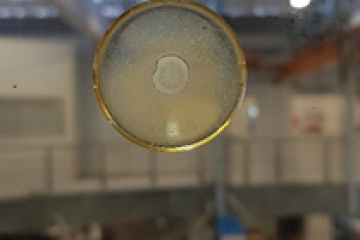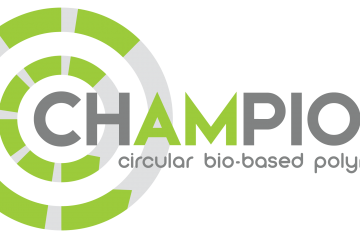Co-regulation: “Fashion or effective tool for the sustainability of global biomass supply chains?”
Environmental and socio-economic concerns around biofuels production are especially discussed for feedstock originating from countries where the risk of non-compliance is high. Assuring the sustainability of biofuels requires therefore that feedstock production and trade occur under the frame of regulation and control mechanisms that can be enforced on an international level.
The European Renewable Energy Directive (RED) allows economic operators in the European Union (EU) to use private sustainability certification schemes to prove compliance with mandatory sustainability criteria for biofuels and other bioliquids Directive. This concept of combining public regulation and private initiatives is referred to as co-regulation. The European Commission (EC) implements co-regulation under the RED via the recognition of private sustainability certification schemes.
Co-regulation builds upon the combined strengths of public regulation and private initiatives. Strengths in public regulation include democratic legitimacy, applicability to all firms within the jurisdiction, and enforceability through national supervisory agencies. Weaknesses include slow development, no applicability outside the national jurisdiction and often high implementation costs for private sector parties. Private initiatives are often flexible, quick and innovative in nature; they may have an international focus and can be applied across national boundaries.
While the recognition of private schemes in public regulation has the potential to combine the strength of both regulatory areas, there are also risks attached to the process. Lack of clarity and guidance during the implementation of co-regulation may end up in some weak private initiatives combined with lenient national regulation, resulting in high environmental or socio-economic concerns. Contradictory demands on private initiatives by different governments may increase implementation costs. Furthermore, if the dynamics of private initiatives is not fully understood, then co-regulation may not be efficient or it may be used in a way that endangers its neutrality and credibility (e.g. for protectionist purposes).
The risks involved in co-regulation, make it evident that careful design, implementation and constant monitoring of such processes are needed to secure their effectiveness. This article discusses the experience of the current EU co-regulation process and lays out the lessons learned and recommendations to overcome the weaknesses detected.
EU co-regulation and the use of private sustainability certification schemes
The co-regulation process in the EU is rather new. It started in 2011, and has undergone since then a steep learning curve. By November 2012, thirteen private certification schemes have been recognised by the European Commission (EC). The scope and assurance level of these recognised certification schemes is heterogeneous. Issues like accreditation, sampling requirements, level of verification, stakeholder consultation, complaints procedures, transparency and recognition of other recognised schemes, are not mentioned in the RED as requirements for recognition, or are only generally defined. This results in a variation in assurance requirements between schemes for those points where the RED lacks guidance or leaves room for interpretation.
The EC is required under this co-regulation process, to assess the effectiveness and operation of recognised private sustainability certification schemes. This assessment gains importance as the share of certified biofuels used in the EU is constantly increasing along with national implementations of RED in Member States. Recent research done by SQ Consult shows that by the end of 2012, about 81% of certificates were issued within the EU where sustainability risk can be considered low; about 14% of the certificates were issued outside the EU in countries with a sustainability risk low to medium, and 5% of certificates were issued in countries with higher risk of poor sustainable practices. This suggests that, while the current co-regulation process seems in general effective to assure sustainability, it may be challenged in the future when more biofuels originate from countries with higher risk of poor sustainability practices.
In the context of higher risk countries supplying biofuel or biofuel feedstock to the EU, certification schemes with a narrow scope of sustainability requirements, and with lower levels of assurance, have a higher probability of not ensuring that sustainability claims are properly fulfilled. Besides this, cross-recognition of certificates may ‘greenwash’ biofuels originated in high risk countries. The assessment of the effectiveness of the recognised certification schemes should therefore include as well a revision of the recognition procedure. These assessments may result in the need to set corrective measures, such as possibly more defined and stricter criteria for the recognition of certification schemes, especially with respect to their level of assurance.
For robustness of the co-regulation process, this assessment could be complemented with an evaluation of the status and robustness of the RED implementation at Member State level. The latest draft of the Renewable Energy Progress Report published by the EC explains that particularly in the larger Member States representing the bulk of biofuel consumption, the implemented national sustainability framework for biofuels works effectively. However, in some Member States there is still scope for improvements.
Boosting the effectiveness of co-regulation in the EU – Lessons learned
Recently proposed changes to the RED are in debate in the European Council and in the European Parliament. These changes aim at promoting the production and use of more sustainable (advanced) biofuels. These changes will most probably require that current co-regulation is adapted to serve effectively the wider types of feedstock, including lignocellulosic biomass, wastes and residues that may benefit from multiple counting measures. While the idea might sound simple, its implementation may be influenced by many technical and political factors that shall be addressed for ensuring a robust sustainability framework for the biofuels industry.
SQ Consult has recently finished a study commissioned by the German Federal Ministry for Economic Cooperation and Development (BMZ) and GIZ (Deutsche Gesellschaft für Internationale Zusammenarbeit) published in April 2013. This study evaluates of the experiences gained with the implementation of the co-regulation process within the RED. The evaluated aspects include:
- Availability and clarity of the administrative procedure for the recognition of private sustainability schemes for biofuels;
- Transparency and confidentiality of the process;
- Technical assessment framework;
- Cross acceptance rules between private certification schemes;
- Parallel recognition procedures at Member State level.
This study, largely based on interviews with different stakeholders, has identified bottlenecks in the RED co-regulation procedure for recognition of private certification schemes. Ten lessons are identified that should inform future recognition processes. See a summary of lessons hereof in Table 1.
| Issue | Problem | Lesson learned |
| Administrative process |
|
|
| Transparency and confidentiality |
|
|
| Technical assessment framework |
|
|
| Cross acceptance between recognised schemes |
|
|
| Parallel recognition structures (EC and MS levels) |
|
|
Conclusions and steps forward
The sustainability requirements established by the RED have started to shape effectively the market for sustainable biofuels in Europe. Our research shows though that the lack of clarity and guidance from the EC for the implementation of this co-regulation process may result in a variety of private certification schemes (with different scopes and different levels of assurance) applied to countries that have different contexts of sustainability risk. This situation may potentially produce lower levels of sustainability assurance compared to what the RED intended.
The deficiencies in the co-regulation process also increase the risk of schemes not being recognised on an equal basis, or that some schemes are recognised too long after its competitors. These deficiencies affect the competition between certification schemes and may result in important losses of market share for some of them as consequence.
Overall, these deficiencies contribute to a strong perception of insufficient transparency and lack of credibility. It is therefore highly needed to understand and monitor the individual performance of certification schemes and to assess whether they meet the desired level of sustainability in their target countries. The importance of a high minimum level of assurance is largely underestimated in the recognition procedure. Clear and more detailed guidance from the EC on the recognition criteria for certification schemes will help to avoid that freedom of interpretation reduces the overall effectiveness of this co-regulation. It is recommended that the EC establishes a more defined and stricter recognition framework, especially in verification requirements, in the next revision of the RED. Rules for the harmonisation between certification schemes, and for cross recognition, should also be more effectively established. These actions would set incentives for schemes to continuously improve their standards and operations.
Furthermore, biofuel certification should be placed in the broader context of sustainable biomass production. This is especially important given the growth of sustainability certification schemes in an international context with increasing multiple end-uses (biobased products, food, fuel, and energy) and purposes. Regulating one use of biomass disregards the fact that the supply chains of other uses are closely linked, especially for agricultural commodities. This multitude of use forms requires sustainability criteria that set incentives to significantly improve the sustainability performance of agricultural production and trade. The EC has an important role in shaping such incentives and to contribute to the harmonisation of sustainability requirements for all biomass uses.
This article was published in the June 2013 issue of the BE-Sustainable magazine http://www.besustainablemagazine.com
¹ The report “Recognition of private certification schemes for public recognition. Lessons learned from the Renewable Energy Directive” can be downloaded from http://www.giz.de/Themen/




